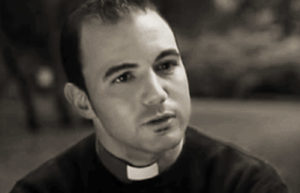Mary, Mother of Jesus to
on December 14th, 2022:
My dearly beloved little children, pray for my sons the priests, that they would be an example to you with their lives. I follow them in every time and place, but most of them do not let themselves be guided by my Son.
They have become men of weak faith: they often think about the things of the world and do not trust with their whole selves in Jesus Christ, who allowed himself to be crucified for the sake and example of His sons the priests.
Pray for them, so that by their personal example, they might become true Christians. The sacrifice of the Cross was one of unspeakable suffering for all people, but for those sons who are priests it must be the primary example.
My sons [who are priests], if you are able to give your lives for your children, give yourselves to Jesus: you will truly be priests of Christ and authentic children of God. Invoke your Mother day and night so that it would be easier for you to imitate her most beloved Son.
In the confessional, be truly worthy to absolve all my children who want to receive Jesus in their hearts. The times are approaching at a rapid pace and then each of you will get what you deserve.
I am with you: welcome me in your hearts and you will have the peace and love of my Jesus. Forgive and you will be forgiven; devote your time to forgiveness and true and sincere love for my Son Jesus.
Mary, the Immaculate Conception to
on December 7th, 2022:
I am your Most Holy Mother and I come to you to celebrate my being immaculate. My children, tomorrow you will celebrate me on my special day, and with you I will pray to my Son that peace would return to your hearts and to the whole world.
May the fact that I am immaculate teach you purity of heart. I am the Immaculata, I became the Mother of Jesus, I suffered at His birth and then at His death on the cross!
Do not complain in your small and great sufferings: always remember that, I your Mother, have given you an example, especially in my very great sufferings. Tomorrow I suggest that you celebrate me above all with the purity of your hearts.
Love yourselves as I loved my Jesus: you brides and mothers, remember my purity of heart but especially physical purity. I am the Immaculata, for the birth of Jesus is purity and chastity.
I have suffered and loved like no other human being; remember that love is born in giving what one has, and I gave you Christ, the One who would then give, for the whole world, His life through the Crucifixion.
My beloved children, live your days on earth as Jesus and I have taught you. Remember that giving your lives for others is the greatest gift of love there is.
I love you so much; tomorrow, show your love for me by loving your brothers and sisters as much as possible. I bless you by praying to Jesus for all of you, My beloved children.



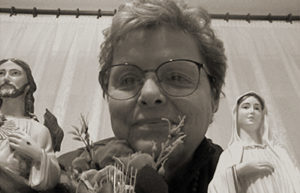 Valeria Copponi
Valeria Copponi Alicja Lenczewska
Alicja Lenczewska

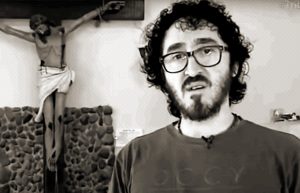
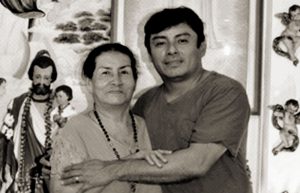
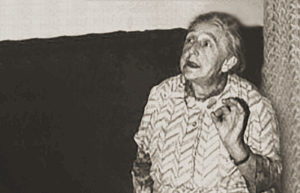 Elizabeth Kindelmann
Elizabeth Kindelmann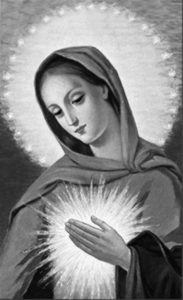 Through what became The Spiritual Diary, Jesus and Mary taught Elizabeth, and they continue to instruct the faithful in the divine art of suffering for the salvation of souls. Tasks are assigned for each day of the week, which involve prayer, fasting, and night vigils, with beautiful promises attached to them, laced with special graces for priests and the souls in purgatory. In their messages, Jesus and Mary say that The Flame of Love of the Immaculate Heart of Mary is the greatest grace given to mankind since the Incarnation. And in the not-so-distant future, her flame will engulf the entire world.
Through what became The Spiritual Diary, Jesus and Mary taught Elizabeth, and they continue to instruct the faithful in the divine art of suffering for the salvation of souls. Tasks are assigned for each day of the week, which involve prayer, fasting, and night vigils, with beautiful promises attached to them, laced with special graces for priests and the souls in purgatory. In their messages, Jesus and Mary say that The Flame of Love of the Immaculate Heart of Mary is the greatest grace given to mankind since the Incarnation. And in the not-so-distant future, her flame will engulf the entire world.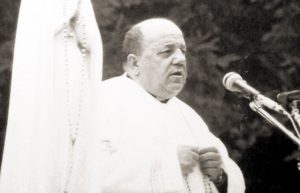 Father Stefano Gobbi
Father Stefano Gobbi Why Gisella Cardia?
Why Gisella Cardia? Thirdly, the messages have frequently been accompanied by visible phenomena, photographic evidence found in In Cammino con Maria, which cannot be the fruit of subjective imagination, notably the presence of the stigmata on Giselle’s body and and the appearance of crosses or religious texts in blood on Gisella’s arms. See the pictures taken from her apparition website
Thirdly, the messages have frequently been accompanied by visible phenomena, photographic evidence found in In Cammino con Maria, which cannot be the fruit of subjective imagination, notably the presence of the stigmata on Giselle’s body and and the appearance of crosses or religious texts in blood on Gisella’s arms. See the pictures taken from her apparition website 
 Jennifer
Jennifer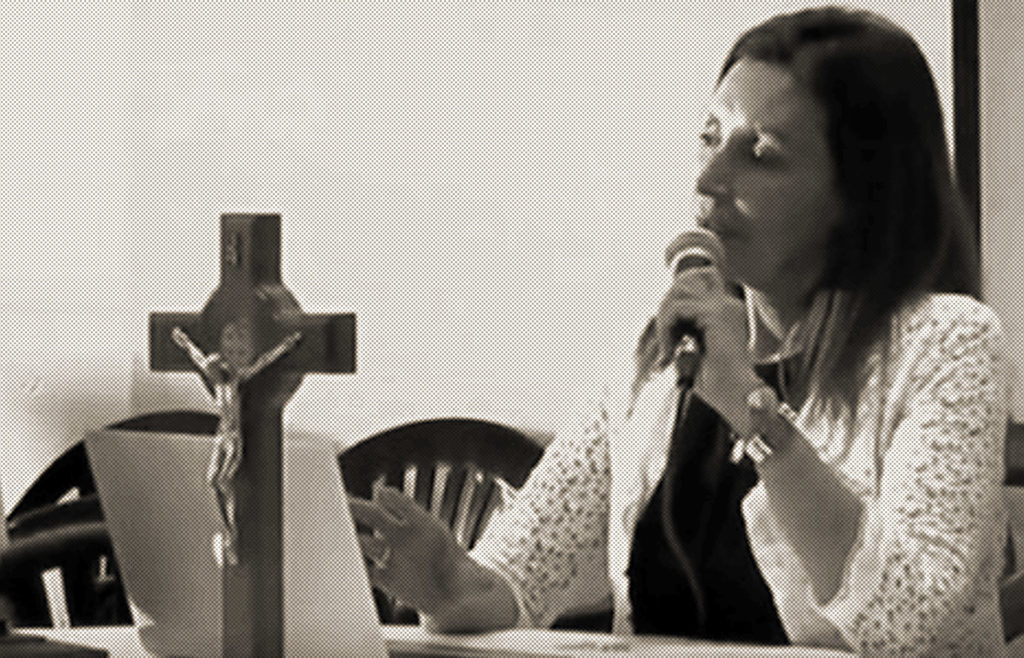
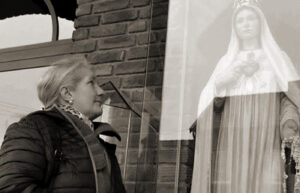 Why Manuela Strack?
Why Manuela Strack?

 Why the Visionaries of Our Lady of Medjugorje?
Why the Visionaries of Our Lady of Medjugorje?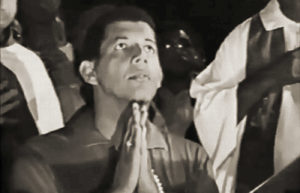 Why Pedro Regis?
Why Pedro Regis?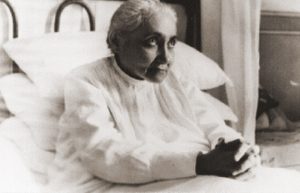 Why the Servant of God Luisa Piccarreta?
Why the Servant of God Luisa Piccarreta? of the saints. It wasn’t until she became a “Daughter of Mary” that the nightmares finally ceased at the age of eleven. In the following year, Jesus began to speak interiorly to her especially after receiving Holy Communion. When she was thirteen, He appeared to her in a vision that she witnessed from the balcony of her home. There, in the street below, she saw a crowd and armed soldiers leading three prisoners; she recognized Jesus as one of them. When He arrived beneath her balcony, He raised his head and cried out: “Soul, help Me!” Deeply moved, Luisa offered herself from that day on as a victim soul in expiation for the sins of mankind.
of the saints. It wasn’t until she became a “Daughter of Mary” that the nightmares finally ceased at the age of eleven. In the following year, Jesus began to speak interiorly to her especially after receiving Holy Communion. When she was thirteen, He appeared to her in a vision that she witnessed from the balcony of her home. There, in the street below, she saw a crowd and armed soldiers leading three prisoners; she recognized Jesus as one of them. When He arrived beneath her balcony, He raised his head and cried out: “Soul, help Me!” Deeply moved, Luisa offered herself from that day on as a victim soul in expiation for the sins of mankind. immobile, rigid-like state that appeared almost as if she were dead. It was only when a priest made the sign of the Cross over her body that Luisa regained her faculties. This remarkable mystical state persisted until her death in 1947—followed by a funeral that was no little affair. During that period in her life, she suffered no physical illness (until she succumbed to pneumonia at the end) and she never experienced bedsores, despite being confined to her little bed for sixty-four years.
immobile, rigid-like state that appeared almost as if she were dead. It was only when a priest made the sign of the Cross over her body that Luisa regained her faculties. This remarkable mystical state persisted until her death in 1947—followed by a funeral that was no little affair. During that period in her life, she suffered no physical illness (until she succumbed to pneumonia at the end) and she never experienced bedsores, despite being confined to her little bed for sixty-four years.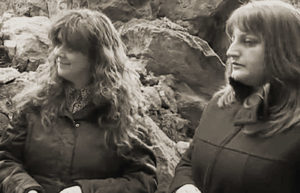 Why Simona and Angela?
Why Simona and Angela?